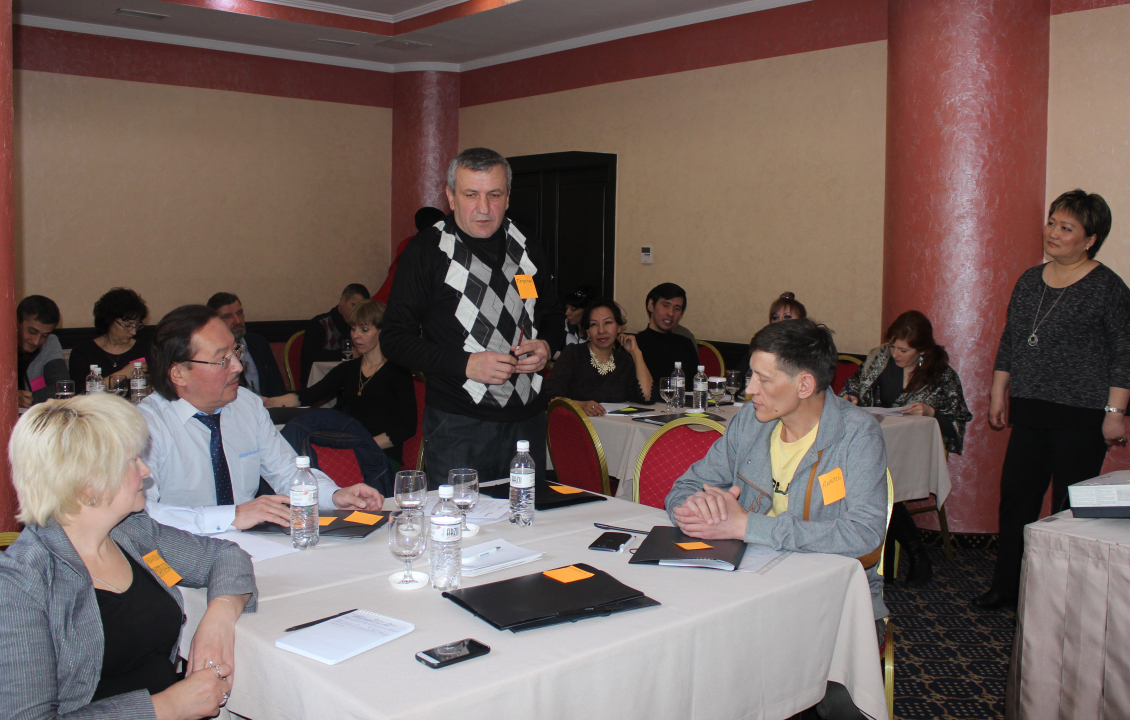
It is not a secret that breaking some hardened stereotypes is a challenging task, especially when it comes to medicine and diseases traditionally considered dangerous for society. Mikhail N. and a non-governmental organization Kazakh Union of People Living with HIV - one of the TB-REP project participants - faced such problems.
Well, here’s the story: Mikhail, having suspected tuberculosis, sought medical care in the polyclinic nearby his place of residence, but... he was refused because he was not attached to it before and, according to existing rules, the polyclinic staff had to visit during 3 days (!) the indicated address and make sure that he really lived there. Being perfectly aware of the threat of the situation, Mikhail decided not to wait; he passed necessary tests and radiography at his own expense. Unfortunately, his fears were confirmed, although the sputum analysis showed TB, Mikhail went to the Tuberculosis Center in his district. Here, unlike the out-patient hospital, they did not hesitate and hospitalized him immediately, pointing out the "active form of tuberculosis" in the map, despite the result of the analysis and objections of the patient, who did not count on such promptness but also understood that the final diagnosis was not yet established. Since the unexpected hospitalization could lead to the fact that Mikhail could become unemployed, being aware that tuberculosis may be treated on outpatient basis, he sought assistance at the Kazakh Union of People Living with HIV, as an organization dealing with tuberculosis problems as well.
The representative of the organization immediately met the head of the Center and found out the reasons for such an urgent hospitalization. One of them was an erroneous interpretation of the analysis result, doubts about its accuracy and the fear of losing sight of the patient, as well as reluctance to deviate from the usual procedure i.e. everything except the interests of the patient himself. A subsequent discussion with the Center's staff showed that health case workers, being aware of the option to treat tuberculosis on outpatient basis, are reluctant to do so, trying to make the process easier for themselves for themselves the process of patient treating and to protect themselves from possible violations of the conventional procedures. However, as a justification, certain arguments were voiced concerning the need for more precise criteria for choosing either hospital or an outpatient model of care.
This story turned out well: the repeated sputum analysis confirmed previous TB result and Mikhail started an outpatient treatment. The physicians of the Center also understood the necessity to change their attitude towards patients and create favorable treatment conditions. As for the Kazakh Union of People Living with HIV, this case became the last straw: it was not a secret that physicians were reluctant to tell the patients about the outpatient model of TB treatment. Now, their immediate plans are to organize active information campaign for health care workers about the advantages of the outpatient model of tuberculosis treatment; convince those who take decisions in the field of tuberculosis control, and society in general, of the need to change an obsolete practice of TB treatment; shape clear recommendations for choosing the form of treatment.